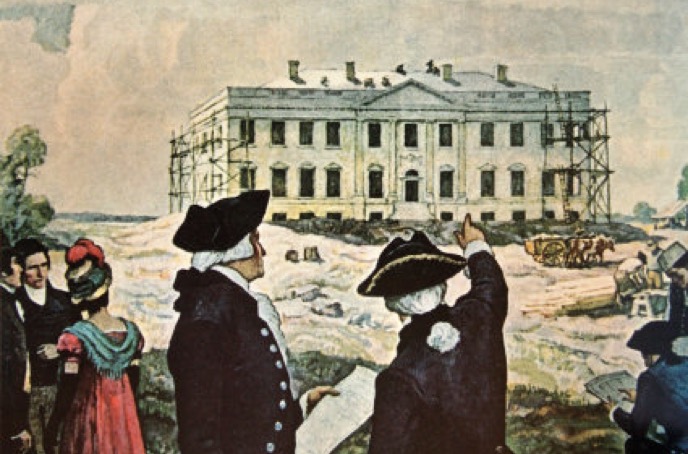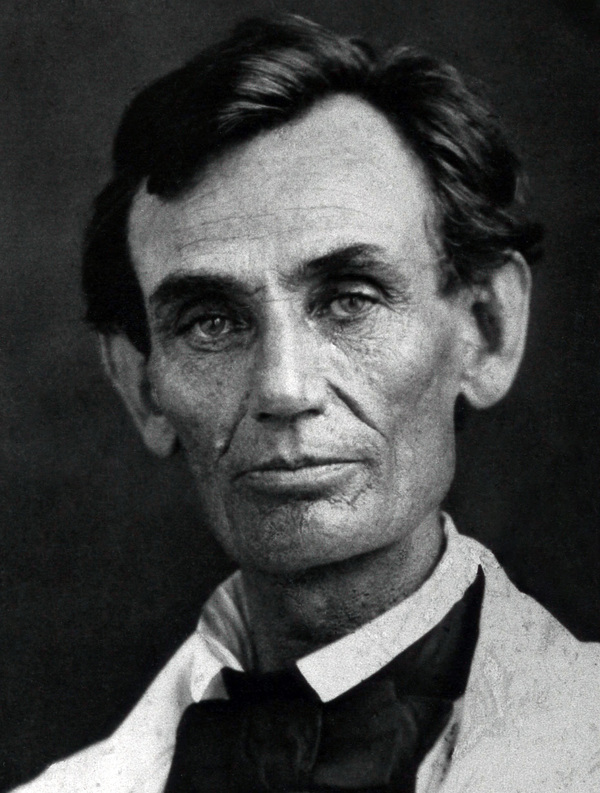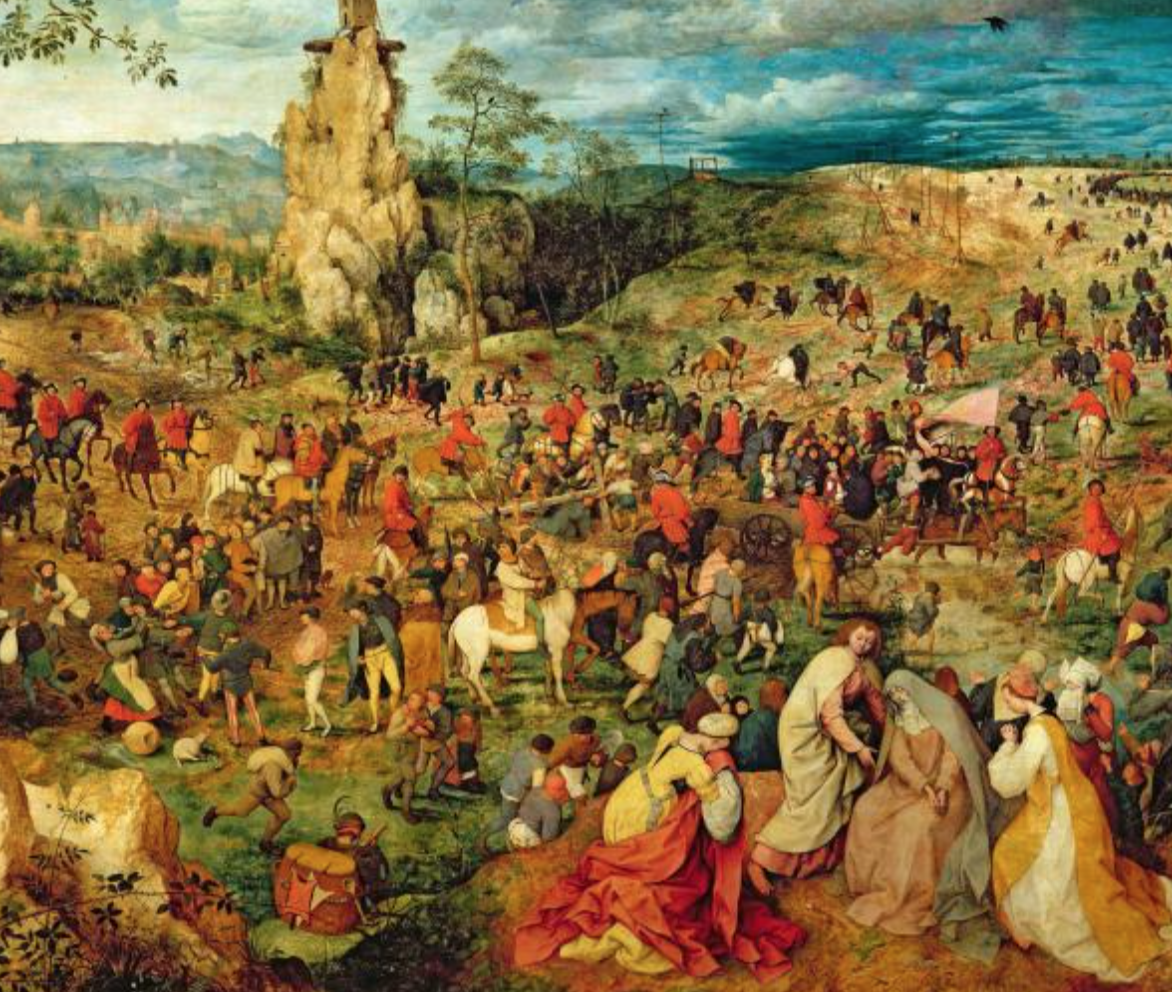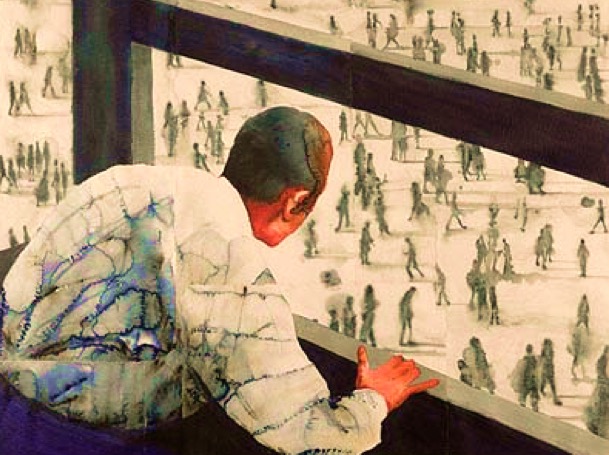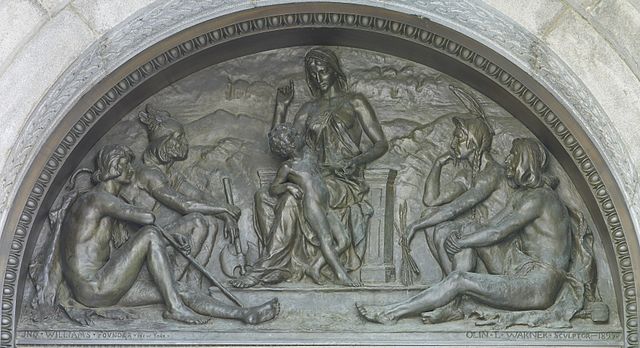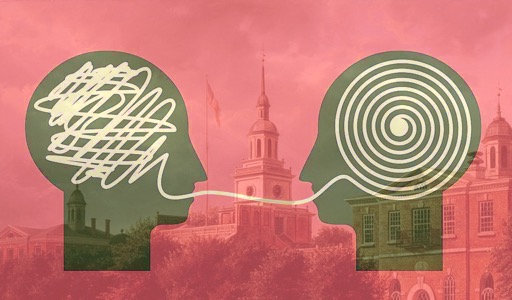Only justice preserves regimes, not history or tradition.
The War Over American Pride

If local communities are to survive, institutionalized shame toward America must be rooted out.
Yoram Hazony warns that we are in the midst of a “perpetual revolution that is devouring all inherited wisdom and common sense.” But what might a politics favorable to national tradition and the restoration of honor and self-restraint look like?
Decades of setback and defeat have wearied conservatives. Hazony tries to remind us that if we care for the future of our country and our form of government, resisting and then actually defeating this revolution are not optional. He sharply criticizes the American conservative movement’s long descent into egalitarian anti-traditionalism and de facto libertarianism. And he presents weighty reasons why inherited norms and traditions are indispensable for generating honor and constraint, the only known supports of self-government.
Hazony tries to refocus our attention from the collective failures of the past to what each of us can accomplish today. Conservatives, he urges, should practice what they preach and show what it means to embrace honorable duty by personal example. The wholesome guidance of religious observance need not wait on some supernatural metaphysical illumination. “It is not disbelief than plagues us,” he writes, “but dishonor.” Above all, Hazony places his hopes on dedicated scholars and statesmen working to “return the people to earlier parts of their own national tradition.”
Moral regeneration is manifestly needed, but can individual efforts suffice? National conservatism, as it seems, has yet to wrestle in earnest with its greatest challenge. It has still to formulate an idea of what exactly it wants from government at all levels. In other words, this new conservatism still lacks a politics.
There have of course been important and overdue shifts on issues like trade and immigration. But if Hazony is right, the real task is to develop a politics that revives norms of honor across a fractured nation.
Public honor—we should be very clear on this point—has not in the least been abolished by the rise of runaway egalitarianism. The career achievements of women are showered with garlands. Every major American city now gives “Pride” parades pride of place. The demands of racial and sexual minorities for proportionate public representation, for instance at the Oscars, are demands for bigger slices of the American honor pie. No society on earth honors everything equally. For us, honor is used to compensate those thought to lack power—or to celebrate those laying claim to it. This is the logic in which identity politics flourishes.
Two Types of Honor
The choice before us is between using honor to reward virtue and using it as an instrument to redress inequality. Growing economic inequality is a genuine evil, especially dangerous for a democracy. But the forced redistribution of honor underway does nothing to alter that. Instead, by making the legacy of real or perceived dishonor into an argument for recognition, we have paved the road to public honors with the nation’s shame.
The consequences are profoundly unsettling. As anyone familiar with American college life knows, many of the brightest and most morally sensitive of our young men and women live under a real weight of collective shame. The nation and its traditions play a negative role in their lives; they personally distance themselves from both to escape the stigma of dishonor. This has now begun to produce an appalling—though psychologically inevitable—reaction.
Conservatives prefer not to belabor race, and for very good reasons. Our identities are not primarily racial, nor do we want a racialized America. But we need to be clear that the popular idea of dispossessing white heterosexual men of their “privilege” is an attack on tradition by other means. By trumpeting the big lie that honor is already nothing but racialized and sexualized power, they mask a genuinely revolutionary demand to turn power over to groups and individuals who define themselves against not just “whiteness,” but, far more, against our fragile remaining traditions of honoring virtue.
The rise of white identity politics is deplorable, but it may yet lead saner elements to the conclusion that the collective shaming must at last be ended. The main difficulty in confronting the politics of shame is that it is not primarily generated by or through government. The new codes of honor emanate from cultural elites and leaders in the media, entertainment industry, universities, and large corporations.
The norms these entities espouse make their appeal to vast and existentially drifting urban populations scattered all around 21st century America in a kind of hyperactive and interconnected web. Our conditions of life are not favorable to honor and self-restraint. It is not so much reason and rational “choice” that introduces habits of unrestraint into American life, but relationships rooted in round-the-clock online gaming or polyamory.
It is difficult to know how to begin a counter-attack. Isolated conservative thinkers have had little success so far and not for lack of trying. Hazony does well to direct our focus toward strengthening the idea of the nation. But not everyone is happy with this. Patrick Deneen, speaking at the recent National Conservatism conference, pointedly argued that the nation does not sustain communities—rather, communities sustain the nation. Concerned by the possibility of centralizing uniformity in the manner of the progressive nationalism of FDR, Deneen calls for a “nation that assists the parts.” Yet if Deneen’s local communities are to stand any chance at all, the plague of institutionalized shame ravaging the nation as whole must be addressed first.
Real Crisis, Real Politics
A strong conservative politics at the national and state level does run the risk of perpetuating the bureaucratic centralization and authoritarian drift long advanced by the Left. The instinct that makes conservatives shy away from extending the power government is healthy. But the libertarian option is no longer viable. The only real alternative to a bolder conservative thinking about the uses of political power is certain failure.
Government is now the only remaining instrument remotely powerful enough to counteract the economic, social and educational conditions fueling the revolution Hazony decries. But conservatism is recovering very slowly from its long bout of libertarian irresponsibility. Conservatives not only need to start taking the government’s role in protecting jobs seriously—they need to acknowledge government’s role in protecting the physical and moral environment in which we all live.
The central challenge of our era for conservatism—and Western politics more generally—is to figure out how to employ political power to encourage the restoration of some of the traditions and norms on which, as Hazony says, the viability of self-government depends.
Consider a central example: conservatives ought to begin by making educational reform on all levels their first and highest priority. Education reform will depend in part on the patient work of outstanding individuals working in specific communities and institutions. But it will also require policies and laws that look beyond standardized test scores and STEM achievement. It is dismaying how little attention most conservative thinkers, politicians and donors pay to the moral content of our institutions of public and higher education.
It is not even knowledge of the nation’s history and traditions, vitally important as this is, that is most lacking and needed in contemporary American education. What is most wanting is precisely the discipline of honor and self-restraint. What remains of “Enlightenment reason” in public education today might be summed up as an ironic spirit of secret contempt for all authority. Identity politics draws on this spirit and strengthens it. but ending identity politics alone will not restore respect for honorable authority, which is the foundation of all honor. That teaching begins at home and during elementary school. Everything depends on reviving the lost art of instilling respect in the young by deserving it.
Popular discontents and an elite worried about losing control are combining to generate a reassertion of political control over economic and social phenomena, long left to develop (or degenerate) without interference. This reassertion will proceed whether or not conservatives find the strength and seek the means to reground our political and cultural life on durable moral foundations.
The American Mind presents a range of perspectives. Views are writers’ own and do not necessarily represent those of The Claremont Institute.
The American Mind is a publication of the Claremont Institute, a non-profit 501(c)(3) organization, dedicated to restoring the principles of the American Founding to their rightful, preeminent authority in our national life. Interested in supporting our work? Gifts to the Claremont Institute are tax-deductible.
Political prudence requires reason—which is why a "conservative rationalism" that embraces universals and particulars alike is needed now more than ever.
The liberal order rests on conservative, not rationalist, foundations.
The traditions of American civilization carry intelligible moral ideas.
When a good is not enough, we need to nourish it anyway.
Our new world sheds new light on the relations between reason and tradition.

